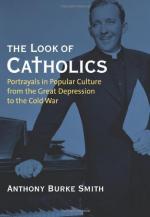|
This section contains 4,653 words (approx. 16 pages at 300 words per page) |

|
Since the 1960s, studies of popular culture in the United States have proliferated and a range of novel arguments have been proposed, linking patterns of popular culture production and consumption to systems of stratification and power. Before the 1960s in Europe, Roland Barthes ([1957] 1972) and Fernand Braudel ([1949] 1966) championed (for quite different reasons) increased attention to everyday culture and its social significance, and members of the Frankfurt school emigrating to the United States brought new theories of mass culture to American academics (Rosenberg and White 1957; Lowenthal 1961), but American scholars still did not generally see any value in studying popular culture.
Beginning in the mid-1960s, as the American middle class began to be targeted by the mass media as the desired audience, more American educators started to show more interest in media-based popular culture, even though in much of academia, studying popular culture was either declassé or taboo...
|
This section contains 4,653 words (approx. 16 pages at 300 words per page) |

|


